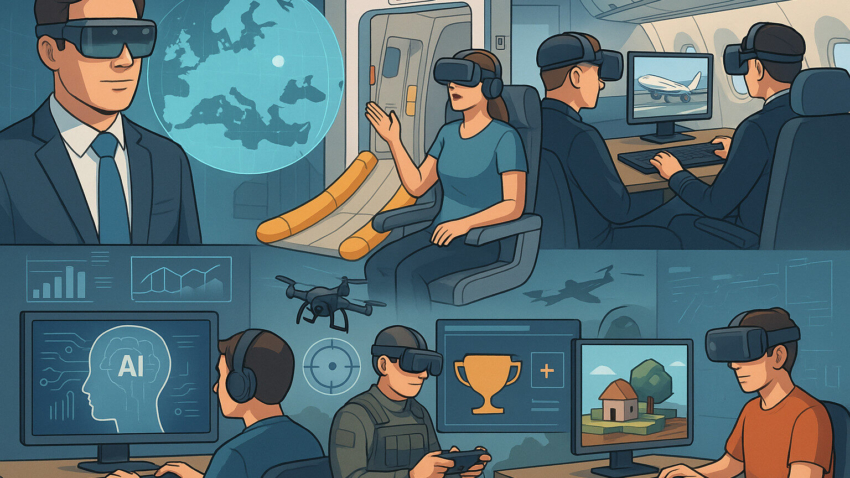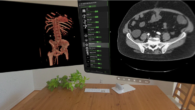
Simulation Weekly News
Europe’s Spatial Computing Market is projected to grow to US$144.83 billion by 2032, driven by the adoption of XR technologies. This growth is visibly impacting core industries, particularly aviation training.
Lufthansa unveiled the €2.4 million Digital Cabin Emergency Evacuation Trainer (D-CEET), a mobile VR system designed for realistic, continuous cabin crew safety drills. Complementing this, Boeing launched the Virtual Airplane Procedures Trainer (VAPT), leveraging Microsoft Azure and Microsoft Flight Simulator technology to standardise pilot procedural rehearsal on standard devices. Such advancements align with key themes for I/ITSEC 2025, which anticipates accelerating human–machine collaboration through AI-enabled adaptive learning platforms.
Innovation also broadened into consumer and military domains. Valve confirmed its standalone Steam Frame VR headset, slated for early 2026, targeting wireless PC VR streaming via its 6 GHz Wi-Fi 6E dongle. Additionally, Ukraine demonstrated battlefield innovation with the Army of Drones Bonus System, which gamifies military actions to improve coordination and data gathering. Finally, accessibility in 3D creation improved with the game Outside the Blocks, allowing users to build complex 3D dioramas using Unreal Engine’s Blueprints system without needing prior modelling expertise.
⊲ Image – DALL-E ⊳








